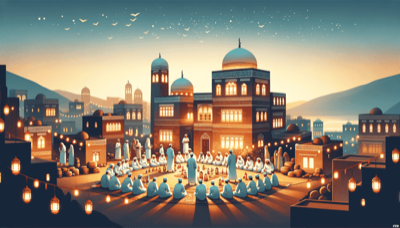We're here to help you keep count of the days to or since a date. Just click the button below and enter your chosen date to get started. Also choose the suggested days or search for a special day above #countingthedays

History and Significance: Eid al-Adha, also known as the Festival of Sacrifice, is one of the holiest events in the Islamic calendar. It commemorates the willingness of Prophet Ibrahim (Abraham) to sacrifice his son as an act of obedience to God, before God provided him with a ram to sacrifice instead. In Yemen, as in other Muslim-majority countries, Eid al-Adha is a time for prayer, feasting, and charity.
Traditions: On the eve of Eid al-Adha, Yemenis engage in various preparations for the upcoming festival:
Purchasing Livestock: Families often buy sheep, goats, or cows ahead of time for the qurbani (sacrificial slaughter), which is a central tradition of Eid al-Adha.
Cleaning and Decorating: Homes are cleaned thoroughly; some people might also decorate their homes with lights and other festive adornments.
Preparing New Clothes: It is customary for people to wear new clothes on Eid. Shopping for attire is part of the festive preparations.
Cooking Special Dishes: Women typically prepare traditional dishes and desserts to be enjoyed during Eid. Kitchens become busy with activity as families prepare to host or visit relatives.
Activities on Eid al-Adha Eve:
Charitable Giving: Many Yemenis take this time to give zakat (charity) to those in need so they too can celebrate Eid.
Prayer Preparations: People ensure they have everything ready for the special Eid prayers that take place early on the morning following the eve.
Family Gatherings: Families often gather on the eve to share meals and express excitement for the holiday.
Cultural Significance: Eid al-Adha holds tremendous cultural significance in Yemen. It's a period that emphasizes communal bonds, generosity toward those less fortunate, and spiritual reflection. Despite any political or economic challenges faced by Yemeni society today, these traditions remain a vital part of cultural identity and religious practice on this significant day.